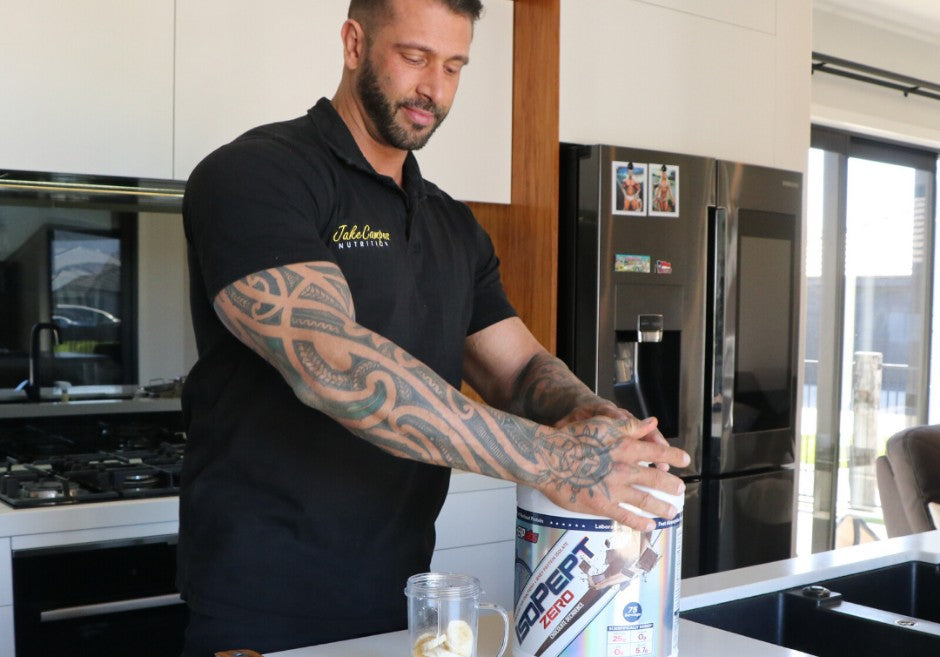A healthy, nutritious diet should be one that provides your body with the correct amount of protein, carbs, fats, calories, micro and macro nutrients along with vitamins and minerals for the purpose of optimal health and function.
To achieve this, the bulk of your nutritional needs should be met through a variety of whole foods, always choosing the least processed and most natural forms of food.
But what about supplements? How do these fit into the equation? Are they good or bad? Better or worse for me?
The word 'supplement' is exactly that; to supplement your daily diet, which should be made of the above listed whole foods. Then, if some of your needs are met through supplementation, that’s a great way to “top up” your nutritional needs.
Needs for each individual will vary - the mum of 2 will not need as many raw materials (carbs, proteins, fats, calories) to recover from her 3 classes per week compared to the elite level athlete who will be expending and recovering at a much higher rate needing more raw materials to recover so make sure you understand your goals first or talk to someone who can help you understand this first.
A great initial supplement most people can benefit from is Protein Powder. Whether you’re a vegan and need a plant based protein, or can use regular whey protein concentrate or isolate protein powders, this supplement can make meeting your protein needs much easier, cheaper on your food bill and a sweet alternative to a mostly savoury macro.
Protein powder can be used in many different ways:
- As part of a meal, such as adding a scoop with your morning oats or cereal
- To assist recovery by adding in after a training session.
- As a snack for a low carb replacement, a protein shake is great
- For a more balanced meal you could have with a piece of fruit that will assist getting in some vital vitamins and minerals.
Proteins are the “building blocks” of all tissue and are needed to repair and recover muscle, skin, hair and nails. They also will keep you the fullest in terms of satiation of all the macros.
Another great addition is to use a Greens Powder if you're not getting in a lot of greens and fruit. Loaded with nutrients, these will assist in hitting all your vital nutrients and aid immunity - keeping your health on form.
Protein Bars are great for a sweet treat, to use as a snack or to replace a chocolate bar when cravings hit. A much better choice than energy dense and nutrient deficient chocolate bars, protein bars will hit the spot and assist your body with some vital protein and nutrients.
Lastly, if performance is your goal, supplements really can give you an edge. Recovering from a training session is the key to building muscle, and keeping performance high across the training week.
Protein powder to maximise the amount of protein you're getting is number 1. To take it a step further I would also add in 1 serve of a BCAA EAA blend powder providing all the amino acids to stop muscle breakdown and increase muscle protein turn over (recovery). Taken during or right after a training session can lead to greater recovery and overall performance.
If strength is your goal, give a micronised Creatine Monohydrate a go. This helps to increase stored creatine in the muscle, allowing for more available cell energy (ATP) leading to more strength, more volume of work to be performed and better recovery. It is also one of the most studied supplements that has great results and safety around the product.
Always ensure you get the majority of your nutrition from good whole foods, eat a balanced diet and plug in these key supplements as needed based on your goals and budget.
Jake Campus is the Director at Jake Campus Nutrition, a nutritionist and professional athlete. With over 10 years experience in the industry, he manages a team of qualified nutritionists to help people all over the world get results and maintain them.




